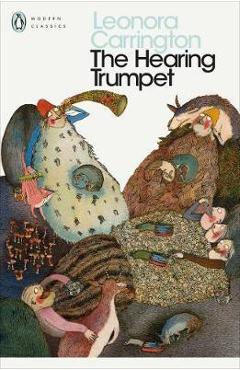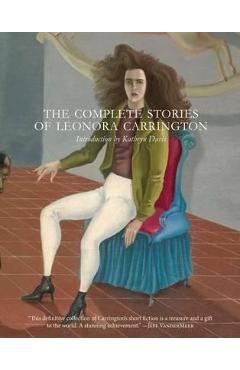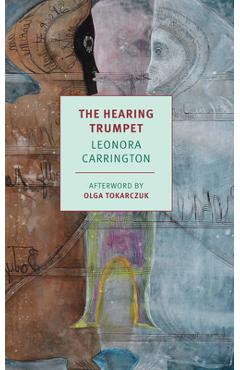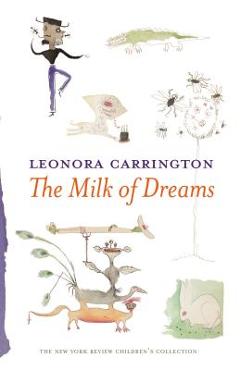Down Below

Detalii Down Below
Vânzător
libris.ro
Pret
89 Lei
89 Lei
98.89 Lei
Categorie (vânzător)
Biography & Autobiography
Marca
Leonora Carrington
Descriere YEO:
Descriere magazin:
A stunning work of memoir and a n unforgettable depiction of the brilliance and madness by one of Surrealism\'s most compelling figures In 1937 Leonora Carrington--later to become one of the twentieth century\'s great painters of the weird, the alarming, and the wild--was a nineteen-year-old art student in London, beautiful and unapologetically rebellious. At a dinner party, she met the artist Max Ernst. The two fell in love and soon departed to live and paint together in a farmhouse in Provence. In 1940, the invading German army arrested Ernst and sent him to a concentration camp. Carrington suffered a psychotic break. She wept for hours. Her stomach became the mirror of the earth--of all worlds in a hostile universe--and she tried to purify the evil by compulsively vomiting. As the Germans neared the south of France, a friend persuaded Carrington to flee to Spain. Facing the approach of robots, of thoughtless, fleshless beings, she packed a suitcase that bore on a brass plate the word Revelation . This was only the beginning of a journey into madness that was to end with Carrington confined in a mental institution, overwhelmed not only by her own terrible imaginings but by her doctor\'s sadistic course of treatment. In Down Below she describes her ordeal--in which the agonizing and the marvelous were equally combined--with a startling, almost impersonal precision and without a trace of self-pity. Like Daniel Paul Schreber\'s Memoirs of My Nervous Illness , Down Below brings the hallucinatory logic of madness home.

Down Below - Disponibil la libris.ro
Pe YEO găsești Down Below de la Leonora Carrington, în categoria Biography & Autobiography.
Indiferent de nevoile tale, Down Below din categoria Biography & Autobiography îți poate aduce un echilibru perfect între calitate și preț, cu avantaje practice și moderne.
Caracteristici și Avantaje ale produsului Down Below
- Departament: auto-moto-rca
- Ideal pentru iubitorii de mașini și motociclete.
- Conținutul acestui produs te ajută să întreții și să îmbunătățești performanțele vehiculului tău.
Preț: 89 Lei
Caracteristicile produsului Down Below
- Brand: Leonora Carrington
- Categoria: Biography & Autobiography
- Magazin: libris.ro
- Ultima actualizare: 28-10-2025 01:22:05
Comandă Down Below Online, Simplu și Rapid
Prin intermediul platformei YEO, poți comanda Down Below de la libris.ro rapid și în siguranță. Bucură-te de o experiență de cumpărături online optimizată și descoperă cele mai bune oferte actualizate constant.
Descriere magazin:
A stunning work of memoir and a n unforgettable depiction of the brilliance and madness by one of Surrealism\'s most compelling figures In 1937 Leonora Carrington--later to become one of the twentieth century\'s great painters of the weird, the alarming, and the wild--was a nineteen-year-old art student in London, beautiful and unapologetically rebellious. At a dinner party, she met the artist Max Ernst. The two fell in love and soon departed to live and paint together in a farmhouse in Provence. In 1940, the invading German army arrested Ernst and sent him to a concentration camp. Carrington suffered a psychotic break. She wept for hours. Her stomach became the mirror of the earth--of all worlds in a hostile universe--and she tried to purify the evil by compulsively vomiting. As the Germans neared the south of France, a friend persuaded Carrington to flee to Spain. Facing the approach of robots, of thoughtless, fleshless beings, she packed a suitcase that bore on a brass plate the word Revelation . This was only the beginning of a journey into madness that was to end with Carrington confined in a mental institution, overwhelmed not only by her own terrible imaginings but by her doctor\'s sadistic course of treatment. In Down Below she describes her ordeal--in which the agonizing and the marvelous were equally combined--with a startling, almost impersonal precision and without a trace of self-pity. Like Daniel Paul Schreber\'s Memoirs of My Nervous Illness , Down Below brings the hallucinatory logic of madness home.





